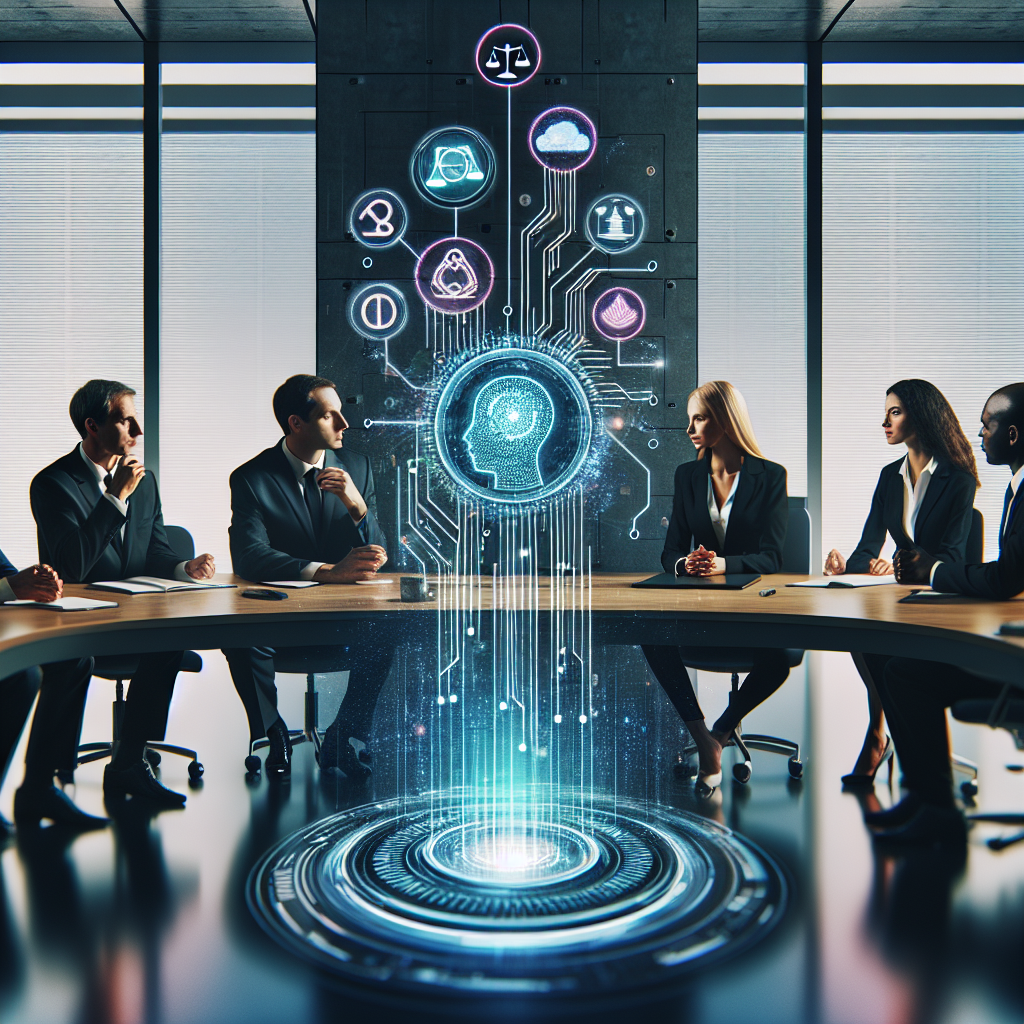The use of artificial intelligence (AI) automation in various industries has been steadily growing in recent years, with applications ranging from healthcare to finance. One area where AI automation is increasingly being utilized is in the field of civil rights. This technology has the potential to revolutionize the way civil rights organizations and activists operate, making their work more efficient and effective.
AI automation can be used in a variety of ways to further the cause of civil rights. One of the most significant applications is in the area of data analysis. Civil rights organizations often collect large amounts of data on issues such as discrimination, police brutality, and voter suppression. AI algorithms can be used to analyze this data quickly and effectively, identifying patterns and trends that might not be immediately apparent to human analysts. This can help organizations to better understand the root causes of civil rights violations and develop more targeted strategies for addressing them.
Another important application of AI automation in civil rights is in the area of legal research. Civil rights lawyers often spend hours poring over case law and statutes to build their arguments in court. AI tools can help to streamline this process by quickly searching through vast amounts of legal documents and identifying relevant precedents. This can save lawyers valuable time and resources, allowing them to focus more on building strong cases for their clients.
AI automation can also be used to improve communication and outreach efforts for civil rights organizations. Chatbots powered by AI technology can interact with members of the public, answering questions and providing information about civil rights issues. This can help to educate the public and raise awareness about important social justice issues. Additionally, AI-powered social media tools can help organizations to reach a larger audience and engage with supporters more effectively.
Despite the many potential benefits of AI automation in civil rights, there are also concerns about the ethical implications of using this technology in such a sensitive area. One major concern is the potential for AI algorithms to perpetuate bias and discrimination. If the algorithms used in data analysis or legal research are not properly calibrated, they could inadvertently reinforce existing inequalities and injustices. It is crucial for civil rights organizations to carefully monitor and evaluate the algorithms they use to ensure that they are not perpetuating bias.
Another concern is the potential for AI to replace human workers in civil rights organizations. While AI automation can certainly streamline certain tasks and make organizations more efficient, it is important to remember that human judgment and empathy are irreplaceable when it comes to fighting for social justice. AI should be used as a tool to augment human efforts, not to replace them entirely.
In order to address these concerns, civil rights organizations should take a cautious and thoughtful approach to adopting AI automation. This means carefully vetting the technology they use, ensuring that it is transparent and accountable, and regularly monitoring its impact on their work. It also means prioritizing diversity and inclusion in the development and implementation of AI algorithms, to prevent bias and discrimination from creeping in.
Overall, the use of AI automation in civil rights has the potential to greatly enhance the effectiveness of social justice efforts. By leveraging the power of AI technology, civil rights organizations can analyze data more efficiently, conduct legal research more effectively, and reach a larger audience with their message. However, it is important for organizations to proceed with caution and to prioritize ethical considerations in their use of AI. With the right approach, AI automation can be a powerful tool in the fight for civil rights.
FAQs:
Q: How can AI automation help civil rights organizations analyze data more effectively?
A: AI algorithms can quickly sift through large amounts of data to identify patterns and trends that might not be immediately apparent to human analysts. This can help organizations to better understand the root causes of civil rights violations and develop more targeted strategies for addressing them.
Q: What are some potential concerns about using AI automation in civil rights work?
A: One major concern is the potential for AI algorithms to perpetuate bias and discrimination. If the algorithms used in data analysis or legal research are not properly calibrated, they could inadvertently reinforce existing inequalities and injustices. There is also concern about AI replacing human workers in civil rights organizations, as human judgment and empathy are irreplaceable when it comes to fighting for social justice.
Q: How can civil rights organizations address concerns about bias and discrimination in AI algorithms?
A: Civil rights organizations should carefully vet the technology they use, ensuring that it is transparent and accountable. They should also prioritize diversity and inclusion in the development and implementation of AI algorithms, to prevent bias and discrimination from creeping in.
Q: What is the role of AI automation in communication and outreach efforts for civil rights organizations?
A: AI-powered chatbots can interact with members of the public, answering questions and providing information about civil rights issues. AI-powered social media tools can help organizations reach a larger audience and engage with supporters more effectively.

